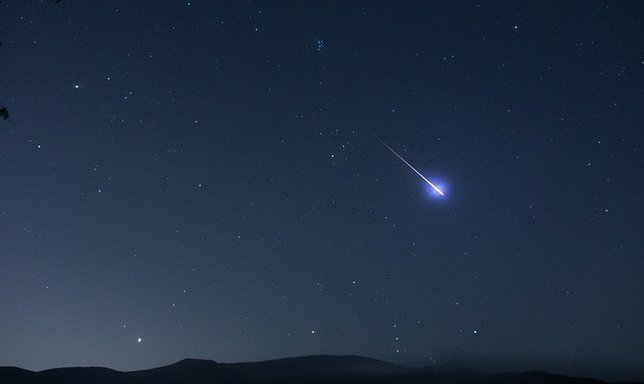2016 has been a bit of a rough year for stargazers on Long Island–potential meteor showers have been a little lacking and often times when there has been a good chance to see some interesting lights in the sky the Island seems to have had the bad luck of cloudy skies to obscure our view–but astronomers are expecting a break from that trend this August.
The Perseid meteors, which will peak between the evening of August 11th and morning of August 12th, are expected to show about 200 meteors per hour for viewers in the northern hemisphere—roughly twice their normal rate.
Additionally, the waxing gibbous moon will set before the predawn hours, so if the outburst occurs before dawn the moon will not block the view. Unfortunately the show won't be quite as rapid if the outburst occurs during the evening, in which case there won't be nearly as many visible meteors, but you could still see a fun (albeit smaller) display nonetheless.
Tips for Spotting Meteors
- Stay in the Dark - Find a dark place away from populated areas with light pollution like streetlights or store fronts that can obscure meteors. Beaches, state parks, and national parks are great dark locations, as they have acres of natural grounds far away from urban development.
- Give Yourself Time - Set aside at least an hour to look for meteors. They may not come all at once, so be sure to be patient and keep your eyes on the sky. You may even want to set aside the entire night of August 11-12 to give yourself the best chance of catching the outburst.
- Check the Weather - Take a look at the weather forecast ahead of time. If it calls for clouds, you likely won't see anything, so keep your fingers crossed for clear skies to get the best view of the meteors!
If you can't stay up to see the Perseids at their peak you may still have a chance to glimpse some meteors. The Delta Aquarid meteor shower, which peaks on July 28 or 29, will still be visible for the better part of August. On any given dark night you could potentially see the Delta Aquarids, and if you're really lucky you might even get to see both meteor showers on the same night.
[Source: Earthsky]










